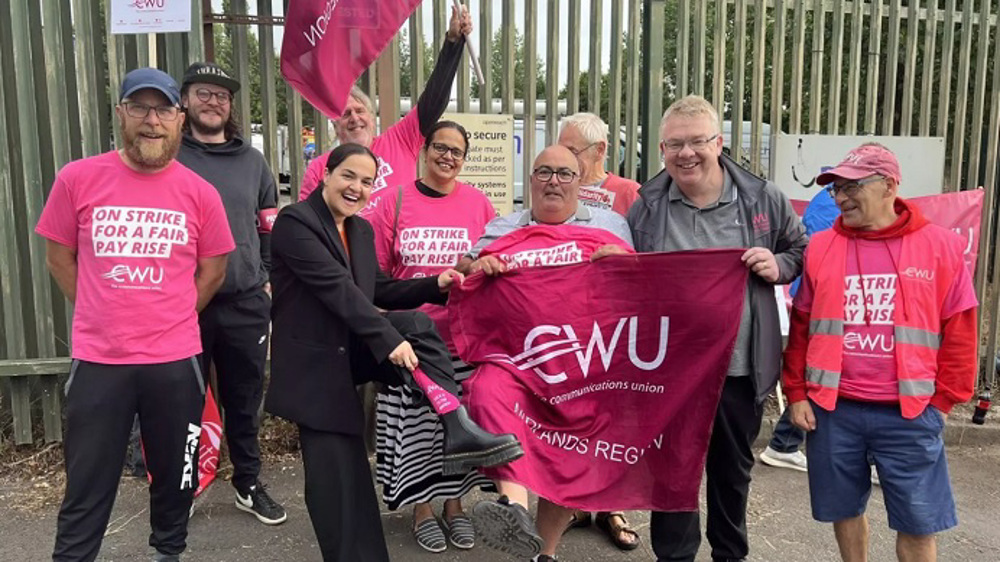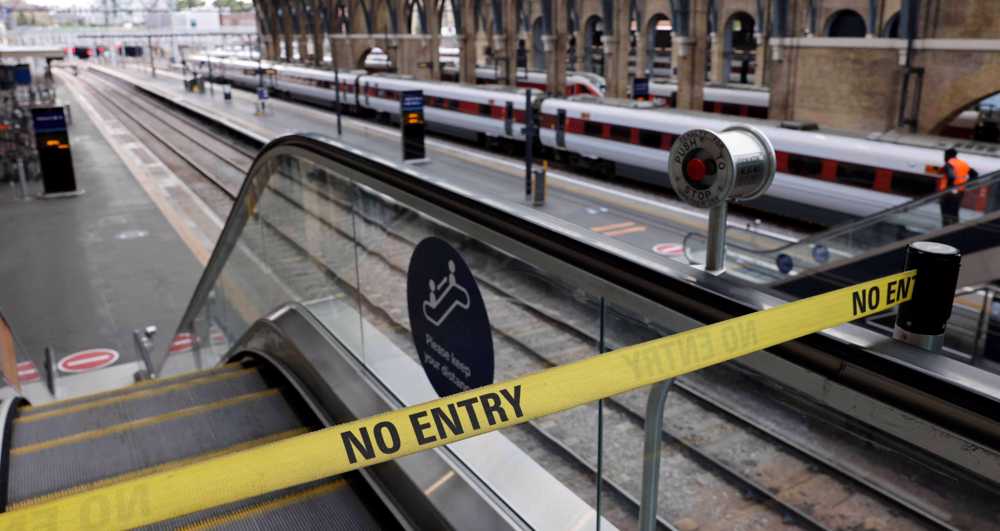Staff at UK communications giants walk out in strike over pay
Thousands of workers at the UK’s leading telecommunication companies of BT and Openreach have walked out on strike over payments in a two-day industrial action in the midst of rising inflation and cost of living crisis across the country.
More than 38,000 workers were on picket lines across the country on Friday, causing costly disruption for the BT Group and their customers, with the second strike still planned for Monday.
According to the Communication Workers Union (CWU), the action is the first national telecoms strike since 1987.
CWU General Secretary Dave Ward said on Friday: “BT workers have hundreds of picket lines arranged across the UK … and will support the CWU in delivering mass strike action.”
“Our members are taking strike action after delivering a massive ‘yes’ vote for the first time in 35 years,” Ward said in an interview on the picket line on Friday morning.
“The reason for that is that they’re desperate for a substantial pay rise to protect them against the cost of living crisis,” Ward added.
“Our members aren’t prepared to put up with that anymore. I actually think it’s bigger than the summer of discontent – I think what you’re seeing now is working people saying enough’s enough right across the UK.”
The development came in the wake of an offer of a £1,500 consolidated pay increase to BT workers’ annual salaries, representing an increase of 8 percent for some colleagues and more than 3 percent for some others.
However, the Deputy General Secretary of the CWU, Andy Kerr, who had previously called for a pay rise of 10 percent, rejected the offer and warned that given the surging level of inflation, it would have represented a “relative pay cut.”
On the other side, BT stands firm on its position and claims that it has made its best pay offer and will not be re-opening the 2022 pay review. It comes as BT recorded £400m in profit in the first quarter of this year.
Meanwhile, the CWU claims that company managers have been “attempting to use misinformation to dissuade workers from taking part” in the planned strike, such as by allegedly telling apprentices that they are not authorized to strike, or telling non-union members that their participation is illegal.
The unprecedented rise in prices in the UK has prompted workers and unions to call for pay rises to keep up with the cost of living. Yesterday, more than 40 thousand railway workers walked out in a row over job security and payments.
VIDEO | Australians rally for Gaza ahead of Christmas festivities
VIDEO | Attacks on Sana'a
Iran reports further drop in annual inflation rate in December
Israel indicts two settlers over suspected spying for Hezbollah
Iran: US airstrikes on Yemen war crimes, violation of international law
Yemeni armed forces down F-18 fighter jet, repel US-UK attack: Spokesman
Iran warns against US-Israeli plot to weaken Muslims, dominate region
VIDEO | Public uproar in US against Israeli regime












 This makes it easy to access the Press TV website
This makes it easy to access the Press TV website